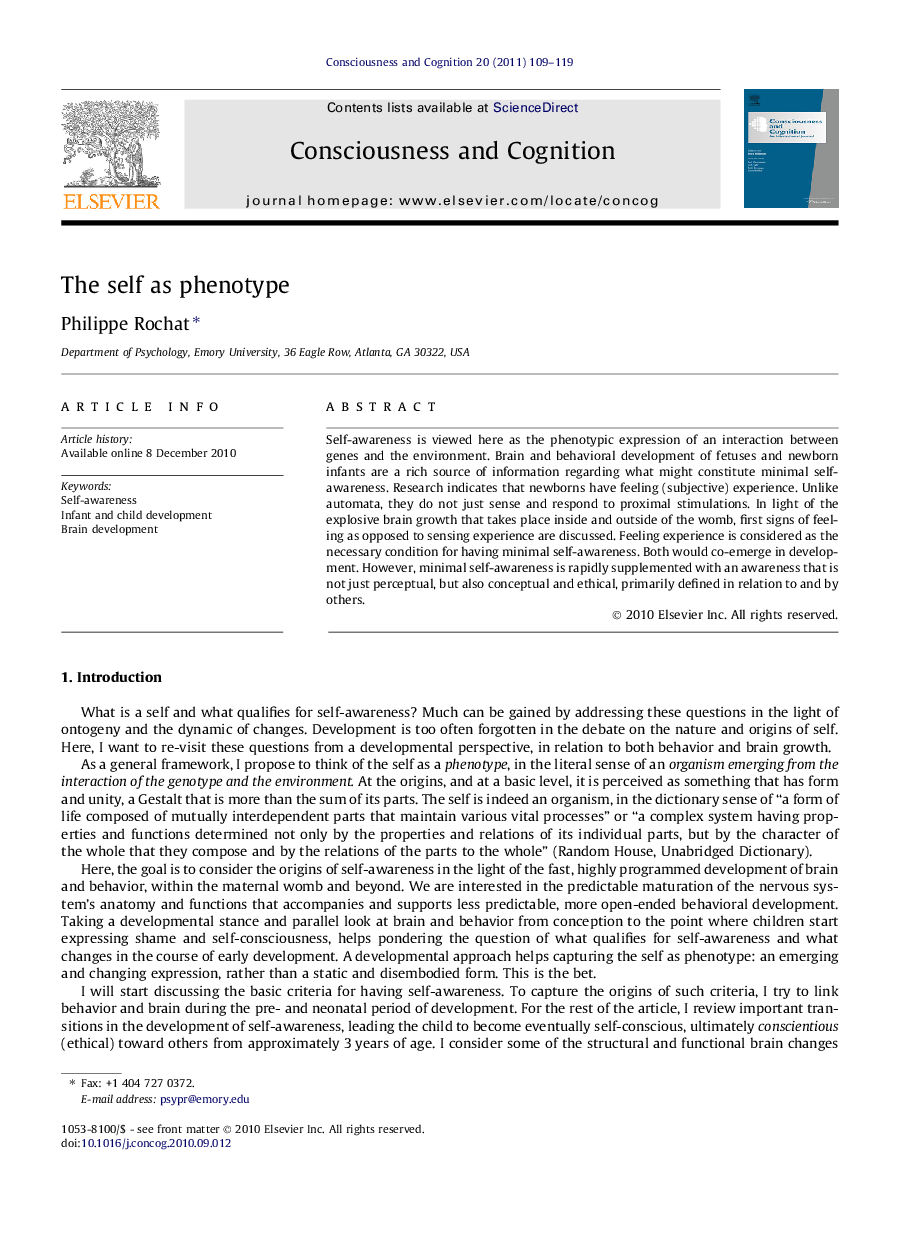| Article ID | Journal | Published Year | Pages | File Type |
|---|---|---|---|---|
| 927685 | Consciousness and Cognition | 2011 | 11 Pages |
Self-awareness is viewed here as the phenotypic expression of an interaction between genes and the environment. Brain and behavioral development of fetuses and newborn infants are a rich source of information regarding what might constitute minimal self-awareness. Research indicates that newborns have feeling (subjective) experience. Unlike automata, they do not just sense and respond to proximal stimulations. In light of the explosive brain growth that takes place inside and outside of the womb, first signs of feeling as opposed to sensing experience are discussed. Feeling experience is considered as the necessary condition for having minimal self-awareness. Both would co-emerge in development. However, minimal self-awareness is rapidly supplemented with an awareness that is not just perceptual, but also conceptual and ethical, primarily defined in relation to and by others.
